I recently took a fun trip to Fort Valley, Georgia, where I met Ashlee Cleveland and had the pleasure of interviewing her and exploring her delightful backyard garden. Ashlee’s enthusiasm for growing vegetables in her beautiful raised beds is contagious.
Ashlee is a photographer. On her website, Ashlee Culverhouse Photo, she shares beautiful photos and writes about family, travel, her journey to greater fitness, and her happy rural life in Fort Valley. She describes herself as a “Children and Family Photographer, Farmer's Wife, Dog Mama and Friend.”
Ashlee is married to pecan farmer Tom Cleveland and she isn’t shy about telling you that, despite being a farmer’s wife, she had a very hard time growing anything.
However, this year has been different! Tom built two raised beds (4 x 4 x 8 foot) in their back garden, they filled them with four BigYellowBags of Soil3 humus compost (4 cubic yards total), and now Ashlee has found her green thumb.
Returning to their Rural Roots
The couple met in elementary school and grew up around Fort Valley. When they left for college, they both missed their rural life so they came back home after they graduated. They love country living and being close to family.
They settled into their charming farmhouse about six years ago and Ashlee began getting more serious about health, fitness, and eating well. She didn’t really like vegetables before, but she has a new outlook now that she can pick them fresh from her own backyard.
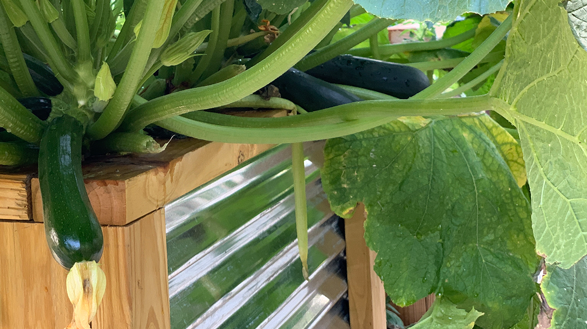
Zucchini are truly thriving in the Soil³ that fills Ashlee's homemade raised beds.
A couple years before, Ashlee had tried growing vegetables in traditional in-ground rows but lost interest when she wasn’t successful. Frustrated by wilting plants and poor production, she always wondered, was she watering too much or too little.
She heard about Soil3 humus compost from friends and decided to try it in her new raised beds.
What a Difference Soil3 Makes
Ashlee found that growing vegetables in Soil3 made a HUGE difference. The humus compost provides natural nutrients that release slowly over time, so she didn’t need to apply any fertilizer. When plants are stronger, they are less vulnerable to disease and pests, and they are very productive. Her vegetables grew healthier, bigger and faster!
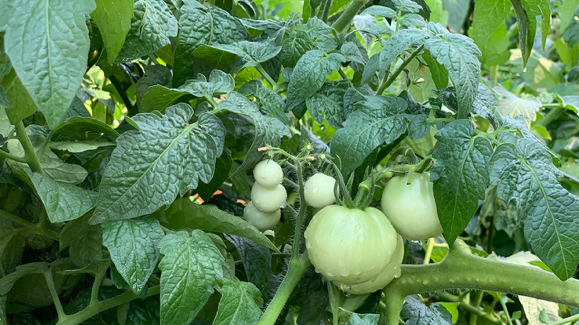
Her raised beds are jammed with plants and overflowing with vegetables. Ashlee is growing Cherokee Purple tomatoes, a few varieties of cherry and grape tomatoes, zucchini, mini cucumbers, bell and banana peppers, rosemary, basil and thyme. All that in two raised beds!
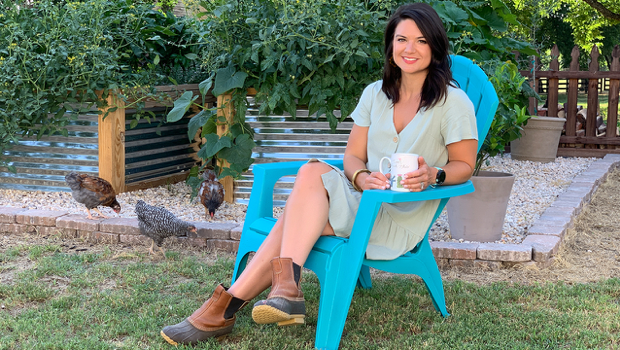
Ashlee has discovered the satisfaction of growing her own food and the beauty of her vegetable garden. Like many of us, she enjoys quiet mornings in the garden, sipping her coffee, listening to the birds, and visiting with her chickens. She marvels over the fact that she has actually grown all of this!
Soil3: The Perfect Choice for Growing Vegetables in Raised Beds
Soil3 is humus compost. Humus is organic matter that is completely decomposed and broken down into its smallest particle size, which makes rich nutrients more readily available to plants.
- Four Times the Water Retention of Regular Soil: Because Soil3 is humus compost, it has better water retention than regular soil. When used in raised beds, it also allows for good drainage.
- Season-Long Growing Without Fertilizer: Soil3 provides enough slow-release nutrients for season-long growing. No need to apply additional fertilizer. It has been tested in raised beds for up to four years without additional fertilizer.
- Reduces the Need for Harsh Chemicals: Soil3 is OMRI Listed for certified organic gardening and the trusted choice for humus compost. Rich in nutrients, it grows stronger, healthier, disease and pest-resistant plants, minimizing the need for chemicals.
- Doesn't Introduce Weeds into Your Garden: Soil3 is produced using a natural high-heat composting method, which renders it free of weeds.
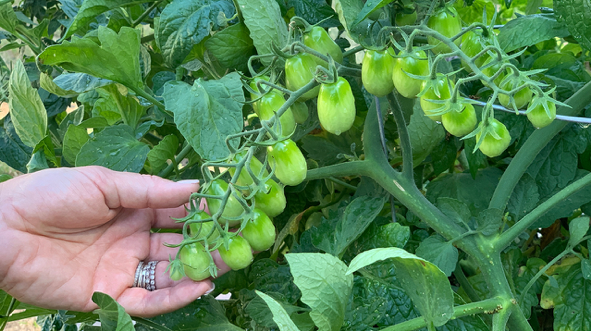
Ashlee loves picking and munching grape tomatoes before they get too ripe. It won't be long before these are ready to be a healthy snack.
Tips for Starting Your Own Raised Bed Vegetable Garden
We can grow and harvest almost year-round here in the south. Raised beds are a great way to get started with vegetable gardening. Planting in raised beds allows you to contain and maintain ideal soil for growing and helps reduce weeds among your vegetables.
- Pick a sunny location: All gardens need good soil, plenty of sun, and water with adequate drainage. As with any garden, raised beds should be placed where the plants will receive at least 6 hours of sun per day.
- Close to water: Vegetable gardens should be planted near a water source. While nothing is better than a good soaking rain, we frequently have periods of drought here in the south. During prolonged dry spells, the county or state may set watering bans. However, unless the drought is severe, vegetable (food) gardens are usually exempt from watering bans.
- Water early: The best time to water is early in the morning to allow time for the water to sink deep into the soil. Avoid watering mid-day when the sun is hot and evaporation is fast. Evening watering is better than no watering but to prevent disease, many vegetable plants, like tomatoes, need time to dry out before the sun goes down.
- One inch a week: Vegetable gardens require at least an inch of water per week. During the very hot summer weather they’ll need more – at least 2 inches of water per week. When long rainy periods happen, raised beds, filled with good soil, allow drainage and keep plants healthy.
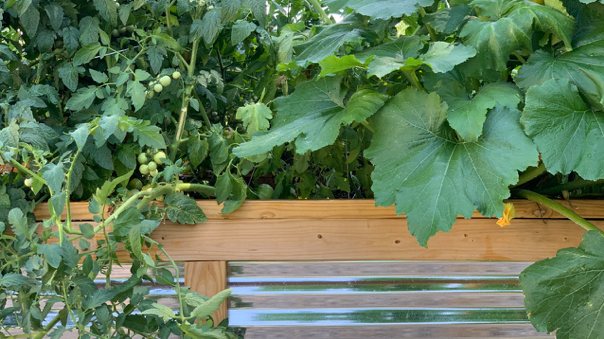
Soil3 Raised Bed Garden Kits
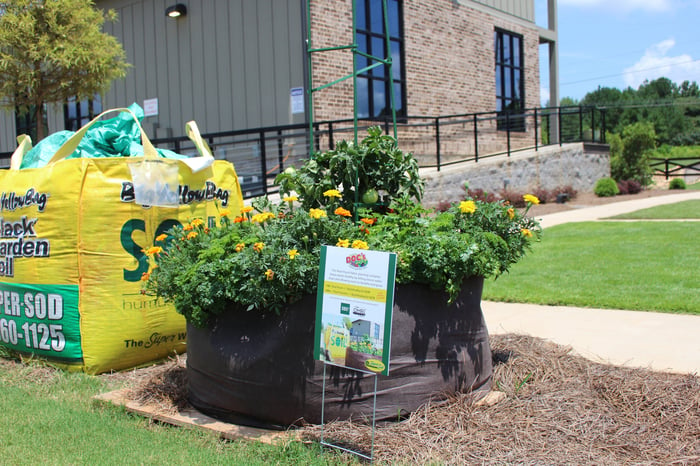
The fabric Big Root Pouch kit is an easy way to start a garden in any sunny space. It is delivered with your BigYellowBag of Soil³ - just fill and add plants!
Are you ready to get started with your own raised bed vegetable garden? Soil3 will deliver a raised bed kit along with a BigYellowBag (1 cubic yard) of humus compost to fill it. Just choose the spot for your garden, set up the bed, fill it with Soil3 compost and you are ready to plant!
Our Big Root Pouches are made from 100% recycled material and provide 8 square feet of growing space. Measures 38" in diameter and 20" tall, holds 100 gallons of compost. Simply unfold the pouch and fill.

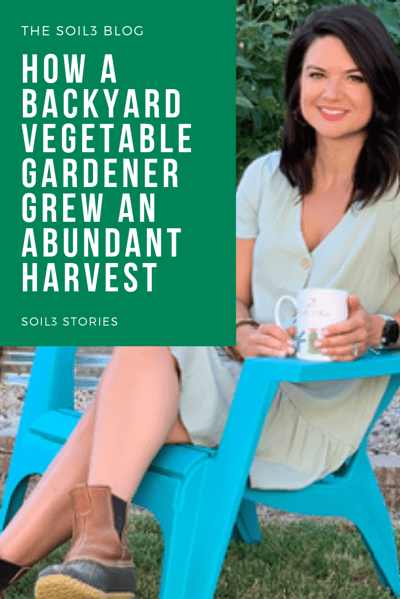
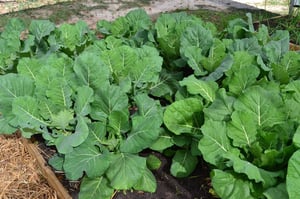
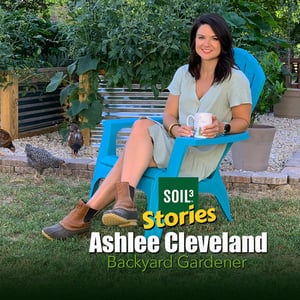



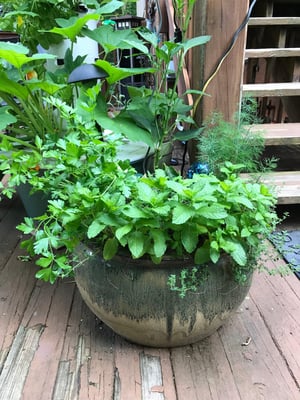
![Growing a Giant Pumpkin on a Scale with Danny Vester [Video]](https://blog.soil3.com/hs-fs/hubfs/Danny%20Vester%20and%20his%20pumpkin.jpg?width=300&name=Danny%20Vester%20and%20his%20pumpkin.jpg)
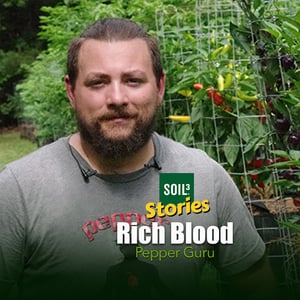
![Growing Giant Watermelons with a North Carolina Champion [video]](https://blog.soil3.com/hs-fs/hubfs/Soil3%20BLOG/Todd%20Dawson%20and%20his%20watermelon.jpg?width=300&name=Todd%20Dawson%20and%20his%20watermelon.jpg)
Did this help you out? Have any questions for clarity? Leave a comment below!